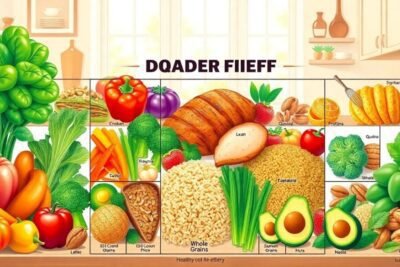
How to lower systolic blood pressure fast
Managing high blood pressure can be daunting, but with the right strategies, you can effectively lower your systolic blood pressure quickly. This article explores various methods, from lifestyle changes to dietary adjustments, to help you achieve your health goals.
- What are the best lifestyle changes to lower blood pressure?
- How does weight loss affect systolic blood pressure?
- What types of exercises can help lower blood pressure?
- Which foods are effective in reducing blood pressure?
- How to manage stress for better blood pressure control?
- What are the risks of high blood pressure?
- Common related questions about blood pressure management
What are the best lifestyle changes to lower blood pressure?
Making lifestyle changes is crucial for lowering blood pressure. One of the most effective ways is through weight management. Losing even a small amount of weight can significantly reduce blood pressure levels. Focus on maintaining a healthy weight by adopting a balanced diet and engaging in regular physical activity.
Another essential lifestyle change is reducing sodium intake. High sodium levels can lead to increased blood pressure, so aim for a diet low in sodium. Incorporating more fruits, vegetables, and whole grains can help you achieve this goal. Additionally, it’s vital to limit alcohol consumption and quit smoking, as both can adversely affect your cardiovascular health.
Stress management also plays a key role in blood pressure control. Techniques such as meditation, yoga, and deep breathing exercises can help reduce stress levels, contributing to lower blood pressure. Implementing these changes can set the foundation for a healthier lifestyle and improve your overall well-being.
How does weight loss affect systolic blood pressure?
Weight loss has a profound impact on systolic blood pressure. Research indicates that losing just 5 to 10% of your body weight can lead to significant reductions in blood pressure levels. This is particularly important for individuals with hypertension, as it can reduce the need for medication.
When you lose weight, you decrease the amount of strain on your heart and blood vessels, allowing for better blood flow. This can result in lower systolic blood pressure and improved overall cardiovascular health. Additionally, healthy weight management often promotes better lifestyle choices, such as increased physical activity and improved dietary habits.
It's essential to approach weight loss holistically. Focus on a combination of healthy eating and regular exercise to achieve long-term results. Creating a sustainable plan that fits your lifestyle will make it easier to maintain your desired weight and enjoy the associated health benefits.
What types of exercises can help lower blood pressure?
Incorporating physical activity into your daily routine is one of the most effective strategies for lowering blood pressure quickly. Aerobic exercises, such as walking, jogging, swimming, and cycling, are particularly beneficial. Aim for at least 150 minutes of moderate-intensity aerobic activity each week.
Strength training is also an excellent addition to your exercise regimen. Building muscle can improve your body’s metabolism and assist in weight management. Consider including resistance exercises, such as weight lifting or bodyweight workouts, at least twice a week for optimal blood pressure control.
Moreover, flexibility and balance exercises, such as yoga or tai chi, can reduce stress and improve overall cardiovascular health. These activities not only promote relaxation but also enhance your well-being, contributing to better blood pressure management.
Which foods are effective in reducing blood pressure?
Diet plays a significant role in blood pressure control. Certain foods have been found to be particularly effective in lowering systolic blood pressure. Incorporating the following foods into your diet can lead to improvements:
- Leafy greens: Spinach, kale, and collard greens are high in potassium, which can help balance sodium levels and lower blood pressure.
- Berries: Blueberries, strawberries, and raspberries contain antioxidants known as flavonoids, which have been linked to reduced blood pressure.
- Beets: Rich in nitrates, beets can help improve blood vessel function and lower blood pressure.
- Oats: Whole grains, like oats, provide soluble fiber that can help reduce blood pressure.
- Fatty fish: Salmon, mackerel, and sardines are high in omega-3 fatty acids, promoting heart health.
Additionally, adopting the DASH (Dietary Approaches to Stop Hypertension) diet can be beneficial. This diet emphasizes whole foods, including fruits, vegetables, and low-fat dairy, while limiting saturated fats and sugars.
How to manage stress for better blood pressure control?
Stress management is crucial for maintaining healthy blood pressure levels. Chronic stress can lead to elevated blood pressure, making it essential to find effective ways to cope. Here are some strategies you can implement:
1. Practice mindfulness and meditation: Engaging in mindfulness practices can help calm your mind and reduce stress levels. Consider spending just a few minutes each day on deep breathing exercises or guided meditation.
2. Engage in physical activity: Regular exercise is a natural stress reliever. Whether it’s a brisk walk or a workout session, physical activity releases endorphins, which can improve your mood and reduce stress.
3. Establish a support network: Surrounding yourself with supportive friends and family can provide comfort during stressful times. Don’t hesitate to reach out and share your feelings with others.
4. Prioritize sleep: Quality sleep is vital for stress management. Aim for 7-9 hours of uninterrupted sleep each night to recharge your body and mind.
5. Limit exposure to stressors: Identify the sources of stress in your life and make conscious efforts to minimize them. Setting boundaries and learning to say no can help you maintain a more balanced life.
What are the risks of high blood pressure?
High blood pressure, or hypertension, poses several health risks that can affect your overall quality of life. If left unmanaged, it can lead to severe complications, including:
- Heart disease: Hypertension increases the risk of developing coronary artery disease, heart attack, and heart failure due to the strain it places on the heart.
- Stroke: High blood pressure can damage blood vessels in the brain, leading to an increased risk of stroke.
- Kidney damage: The kidneys play a crucial role in filtering blood. Hypertension can lead to kidney disease or kidney failure.
- Vision loss: Damage to the blood vessels in the eyes can cause vision problems or even blindness.
- Sexual dysfunction: Men with high blood pressure may experience erectile dysfunction, while women may face reduced libido or discomfort during intercourse.
Understanding these risks emphasizes the importance of taking proactive steps to lower systolic blood pressure fast and maintain a healthy lifestyle.
What is the fastest way to lower systolic blood pressure?
The fastest way to lower systolic blood pressure typically involves a combination of lifestyle changes and dietary adjustments. Quick interventions include managing stress, engaging in physical activity, and consuming foods rich in potassium and magnesium. Deep breathing exercises and hydration can also provide immediate relief.
Can drinking lots of water lower blood pressure?
Yes, staying well-hydrated is essential for maintaining healthy blood pressure levels. Drinking water can help your body manage sodium levels and support overall cardiovascular health. However, it's important to focus on a balanced diet and lifestyle changes as part of your overall strategy to lower systolic blood pressure fast.
What would decrease systolic blood pressure?
Several factors contribute to lowering systolic blood pressure, including weight loss, regular exercise, reducing sodium intake, and managing stress. Incorporating a diet rich in fruits, vegetables, and whole grains can also have a positive impact. Together, these strategies create a comprehensive approach to blood pressure management.
How can I bring my blood pressure down urgently?
To urgently lower your blood pressure, consider immediate relaxation techniques such as deep breathing exercises, meditation, or a calming activity. Engaging in physical activity, even a short walk, can also help reduce blood pressure levels quickly. Always consult with a healthcare professional for personalized guidance.










